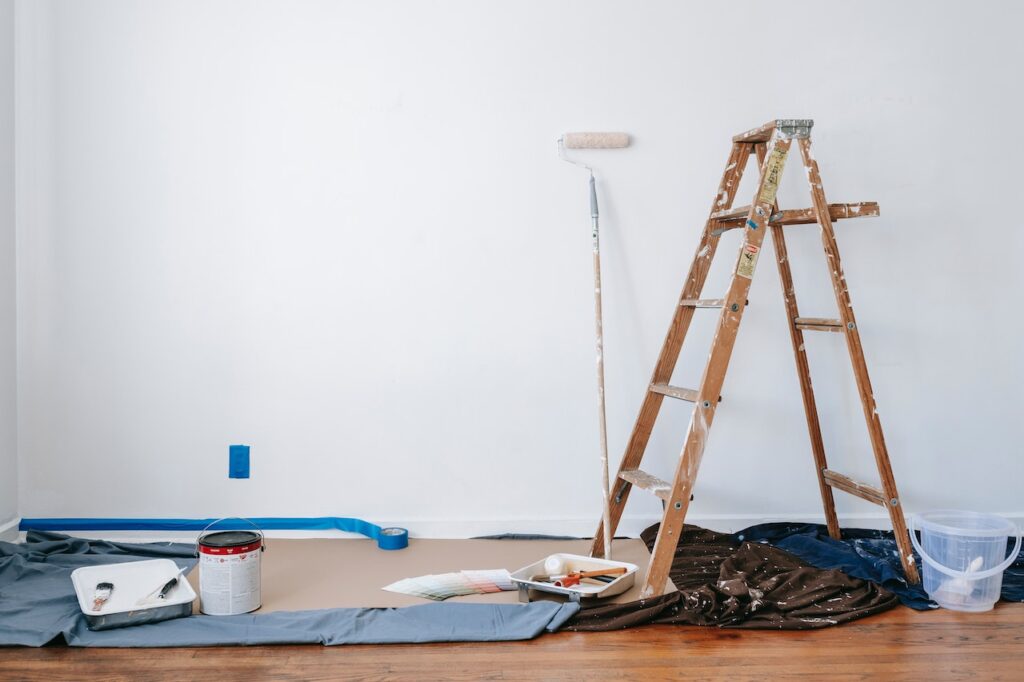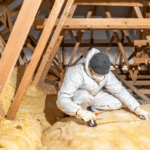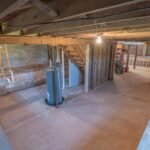Embarking on a home renovation can be an exciting yet overwhelming experience. Whether you’re looking to improve your living space, increase your property’s resale value, or simply modernize your home, careful planning is essential to ensure a successful outcome.
This article will walk you through key considerations for your home renovation project, providing valuable insights and guidance to help you maximize your investment.
Obtain Necessary Permits
Understanding your local building codes and regulations is critical in obtaining the necessary permits for any renovation project. Researching what types of permits, inspections, and other prerequisites are required can initially seem overwhelming. However, with just a few clicks, you’ll know exactly which license applications to fill out before getting started! For example: if you’re looking to revamp your house in Grand Prairie, Texas, then be sure to get all relevant information from the City of Grand Prairie’s Building Inspections Division so that nothing stands between you and your dream home.
Once you’ve identified the required permits, submit the applications and pay any associated fees. Permit approval can take time, so plan accordingly to avoid delays. In Grand Prairie, for example, the average permit processing time is 7-10 business days. However, more complex projects may take longer to review and approve. Your contractor should be able to assist you with this process and ensure that all inspections are scheduled and completed as needed.
Prepare for Disruptions during Construction
Before any renovation work, you must prepare yourself and your family for the inevitable inconveniences. To minimize disruption caused by construction, finding a secure storage solution can help greatly in protecting your belongings while renovations are underway. Self-storage units are ideal if you need space to store items during lengthy projects. For instance, if your renovation project is taking place in Texas, you can explore various Grand Prairie storage units to find one that meets your size and budget requirements. Research local storage facilities to ensure you choose a reputable and secure option.

Another important thing is to develop a plan for your living arrangements during the renovation, whether temporarily relocating or creating makeshift living spaces within your home. If you’re staying in the house, set up temporary kitchen or bathroom facilities to minimize the impact on your daily routine.
Set Clear Goals and Objectives
Before you start tearing down walls or picking out new fixtures, it is essential to identify the purpose of your renovation first. Are you aiming to modernize the style, bolster functionality, or provide more space? By understanding precisely what goals and objectives are necessary for this endeavor, you’ll better understand which aspects to focus on and where to allocate your resources.
Furthermore, consider how your changes will impact your home’s resale value. While some renovations, like upgrading kitchens and bathrooms, can significantly increase your home’s worth, others may not have the same return on investment. Be strategic in your choices and keep your long-term goals in mind.
Establish a Realistic Budget
A crucial step in any renovation project is developing a realistic budget. Start by researching the costs of materials, labor, and any additional expenses such as permits or disposal fees. Also, account for unexpected costs—adding a buffer of 10-20% to your budget can help you be prepared for unforeseen expenses that may arise during the project.
Financing your renovation is another important consideration. Whether you opt for a home equity loan, a personal loan, or a line of credit, explore your options and choose the one that best suits your financial situation. Keep in mind that it’s better to invest in quality materials and workmanship than to cut corners and potentially face costly repairs down the road.
Choose the Right Contractor
Hiring the right contractor can make or break your renovation experience. To find the best fit, research local contractors and compile a shortlist of potential candidates. Verify their licenses and insurance, and make sure they have experience with projects similar to yours. Request references and read online reviews to understand their workmanship and professionalism better.
Once you’ve narrowed your options, obtain detailed quotes from your top contenders. Compare their proposals, taking note of the materials, labor costs, and projected timelines. Remember that the lowest bid may not always be the best choice—focus on finding a contractor who communicates well, has a proven track record, and offers a fair price for quality work.
Develop a Detailed Timeline
A detailed timeline is essential for a smooth renovation experience. Start by estimating the duration of each project phase, from demolition and construction to the finishing touches. Be realistic in your expectations, and don’t forget to include buffer time for unexpected delays, such as material shortages or permit approvals.
Once you’ve established a timeline, coordinate with your contractor and suppliers to ensure everyone is on the same page. Regular progress updates and open communication will help keep your project on track and minimize potential misunderstandings or costly mistakes.
Prioritize Energy Efficiency and Sustainability
Incorporating energy efficiency and sustainability into your home renovation benefits the environment and can result in long-term cost savings. Start by assessing your home’s current energy usage and identifying areas for improvement. This may involve upgrading your insulation, installing energy-efficient windows, or replacing outdated appliances with ENERGY STAR-rated models.
Consider incorporating eco-friendly design elements into your renovation, such as solar panels, rainwater collection systems, or sustainable building materials.
Plan for Future Needs
As you plan your renovation, it’s important to consider how your needs may change over time. Aging-in-place features, such as wider doorways, zero-threshold showers, and lever-style door handles, can accommodate mobility challenges and ensure your home remains comfortable and accessible as you grow older.
Additionally, consider how your family size might change in the future. Will you need more bedrooms or bathrooms to accommodate a growing family? Or you’ll need a flexible space that can easily transform from a home office to a guest room. By anticipating your future needs, you can create a more adaptable and functional living space that will serve you well for years.
Maximize Space and Functionality
One of the primary goals of a renovation is to improve the functionality and efficiency of your living space. Begin by evaluating how you currently use each room and identify opportunities to optimize your layout. This may involve removing walls to create an open-concept design, adding built-in storage solutions, or simply re-configuring your furniture arrangement.

Think creatively – look for underutilized areas, such as empty corners or under-stair spaces that can be transformed into functional nooks or storage solutions. Optimizing your home’s layout and making the most of every square foot can create a more enjoyable and efficient living environment.
Conclusion
If you’re ready to embark on a home renovation, remember that careful planning and attention to detail are essential for success. Although challenges can arise during the process, an open mindset and willingness to adapt will allow you to create a functional yet stylish living space tailored to your needs. Invest in thorough preparation – from research and budgeting through communication – so that, ultimately, it’ll be easier (and more rewarding) to achieve your dream home.






